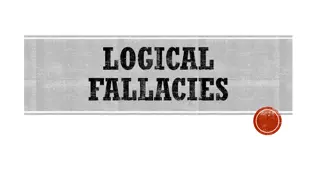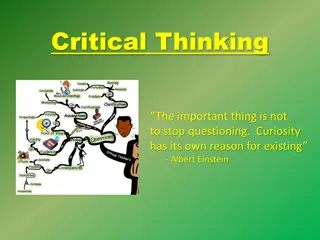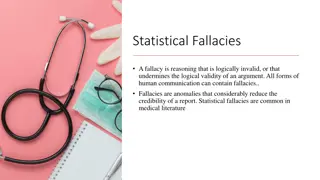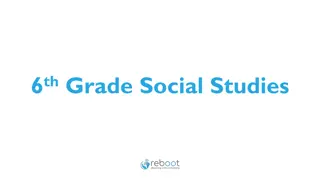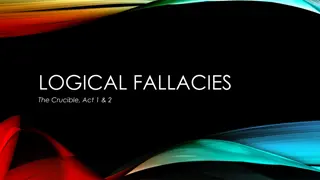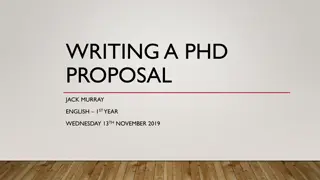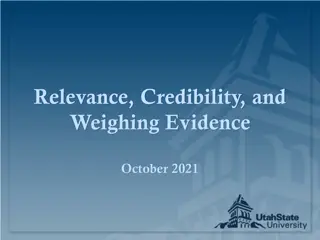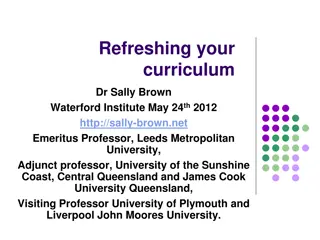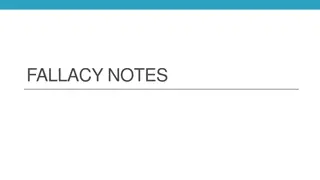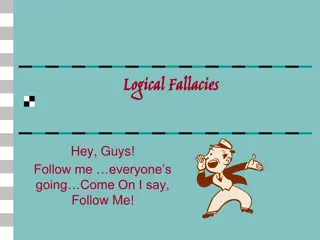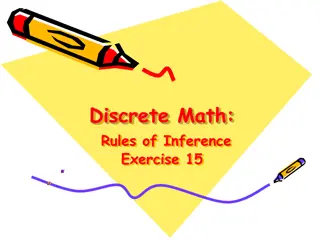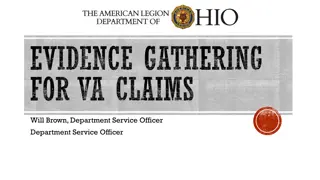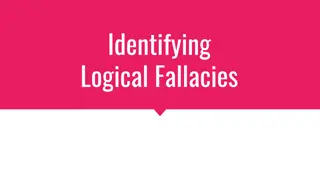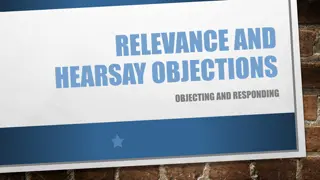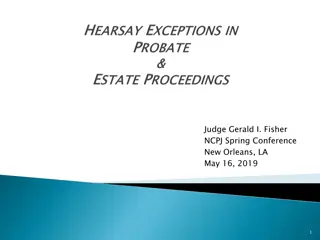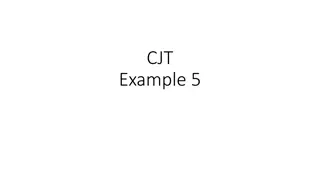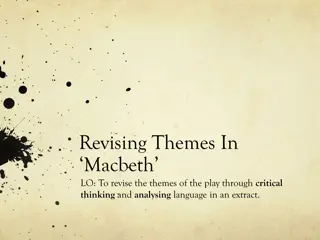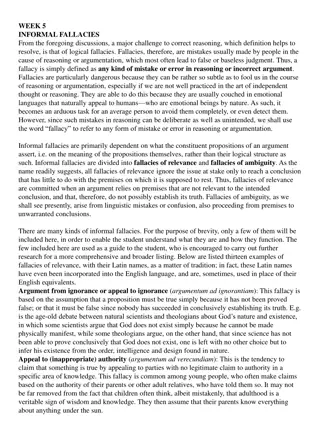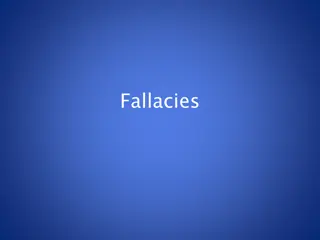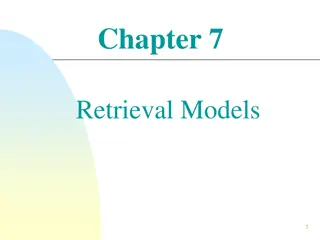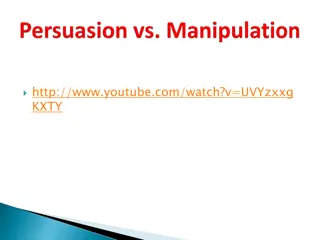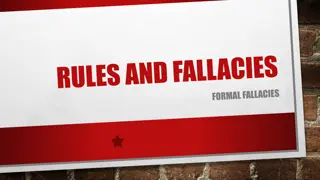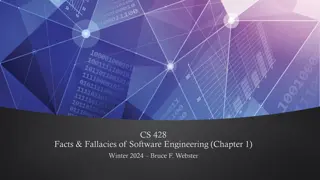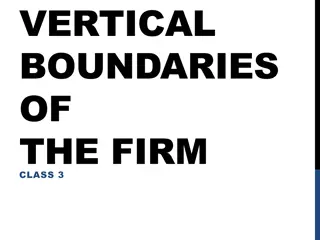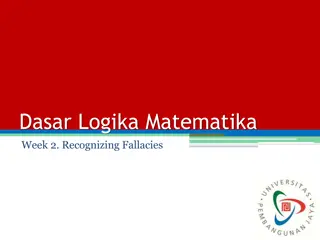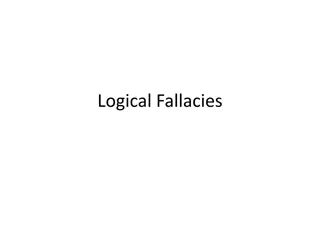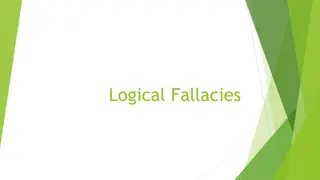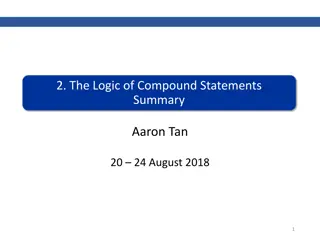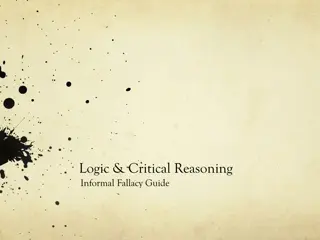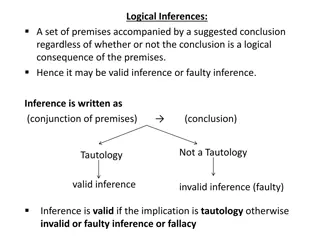Identifying Logical Fallacies: Understanding Poor Reasoning
Logical fallacies are errors in reasoning that can occur in formal or informal arguments. Examples include appeals to authority, appeal to the majority, appeal to pity, and appeal to force. Understanding these fallacies can help in recognizing and avoiding flawed arguments.
0 views • 22 slides
Exploring 2x2 Matrices in Political Science: An Irreverent Perspective
Delve into the world of 2x2 matrices in political science with a humorous twist, uncovering their foibles, fallacies, and effectiveness. From youthful rigidity to complex behavioral continuums, this unconventional take on matrices unveils their application in various scenarios like spouse choices, b
0 views • 34 slides
Enhancing Critical Thinking Skills in Daily Life
This content emphasizes the importance of critical thinking in various aspects of life, including personal, professional, academic, and spiritual realms. It delves into the significance of active learning, cultivating an open mind, separating emotions from facts, and avoiding logical fallacies. Prac
1 views • 17 slides
Understanding Ethics: The Role and Importance in Society
Ethics, derived from the Greek word "ethos," plays a crucial role in distinguishing between right and wrong actions in human society. It involves a set of theories that guide moral decisions and define values, virtues, and vices. Through the analysis of ethical arguments, identification of premises
0 views • 27 slides
Understanding Gramsci's Political Theory and its Relevance Today
Gramsci's political theory, focusing on concepts such as hegemony, historical bloc, and the role of intellectuals, offers valuable insights into contemporary political challenges. Explored through the lenses of Prof. Ken Spours and Stuart Hall's analytical tradition, this analysis sheds light on Con
0 views • 13 slides
Understanding and Avoiding Statistical Fallacies in Medical Literature
Statistical fallacies, which can significantly reduce the credibility of reports, are common in medical literature. These fallacies often arise from issues with sample problems, inadequate analysis techniques, errors in presentation of findings, and misinterpretation of statistical results. Maintain
0 views • 7 slides
Understanding Fallacies in 6th Grade Social Studies
Explore the world of fallacies in 6th Grade Social Studies through examples and activities. Learn about biases, experimenter bias, confirmation bias, correlation vs. causation, random chance, lack of control group, and overgeneralization. Engage in group activities to identify and discuss different
3 views • 8 slides
Logical Fallacies in The Crucible: Act 1 & 2
The Crucible's Acts 1 and 2 are analyzed for logical fallacies including Hasty Generalization, Either/Or Fallacy, and False Cause among others. Key quotes and character interactions demonstrate flawed reasoning in the play's narrative.
4 views • 13 slides
Mastering the CRAAP Test for Evaluating Information Online
Understand the importance of evaluating online information using the CRAAP Test. Developed by the Meriam Library at California State University Chico, this test focuses on Currency, Relevance, Authority, Accuracy, and Purpose. Learn to assess the timeliness, reliability, and relevance of sources to
2 views • 57 slides
Relevance and Limitations of Marx's Capital in Modern Social Theory
Exploring the ongoing relevance of Marx's Capital in contemporary social theory, Gary Herrigel from the Department of Political Science discusses its implications and theoretical considerations. Despite its foundational role, Marx's work also faces practical limitations, such as the challenge of tra
3 views • 14 slides
Exploring Attention and Relevance in English PhD Research
Delve into the dynamics of attention and relevance within English research through a comprehensive and structured exploration. Uncover the impact, originality, and unique value of your study amidst existing literature, ultimately aiming to contribute meaningfully to the field. Embrace the challenges
0 views • 11 slides
Global Relevance and Redundancy Optimization in Multi-label Feature Selection
The study focuses on optimizing multi-label feature selection by balancing global relevance and redundancy factors, aiming to enhance the efficiency and accuracy of data analysis. It delves into the challenges posed by information theoretical-based methods and offers insights on overcoming limitatio
0 views • 15 slides
Understanding Relevance, Credibility, and Weighing Evidence in Decision-Making
Explore the importance of relevance and credibility in evidence assessment, the role of hearing panels in evaluating evidence fairly, and the responsibilities they hold. Learn about presenting relevant evidence, policy analysis, and identifying irrelevant evidence to ensure a thorough review process
6 views • 32 slides
Enhancing Curriculum Relevance and Student Engagement in Higher Education
Reviewing and updating academic programmes to ensure curriculum relevance, active student engagement, appropriate assessment strategies, and effective use of technology to support learning. Considerations include international competition, student diversity, technological advancements, student feedb
1 views • 34 slides
Understanding Fallacies in Argumentative Techniques
Dive into the world of fallacies in argumentation, exploring the nuances of Ethos, Pathos, Logos, and various rhetorical devices. Uncover the pitfalls of faulty Ethos and Pathos, dissecting examples such as Poisoning the Well and Appeal to Pity. Enhance your critical thinking skills by recognizing a
0 views • 16 slides
Understanding Logical Fallacies and Persuasion Techniques
Learn about logical fallacies, persuasive writing, propaganda, and types of fallacies with examples like circular reasoning and false causality. Recognize how persuasive texts aim to influence readers and the importance of critical thinking when encountering different argumentative strategies.
0 views • 31 slides
Analyzing Validity of Arguments in Discrete Math
This exercise assesses the validity of arguments in discrete mathematics by identifying logical errors or applying rules of inference. The solutions provided highlight fallacies such as affirming the conclusion, modus tollens, and denying the hypothesis. Understanding these principles is crucial for
0 views • 4 slides
Understanding Evidence Gathering for VA Claims with The American Legion Department of Ohio
Evidence is crucial for VA claims, and it can come in various forms such as documents, written statements, photos, and video recordings. The framework for evaluating evidence includes factors like relevance, competence, credibility, and weight. Understanding the types of evidence, forms of relevance
0 views • 14 slides
Identifying Logical Fallacies in Sources: Presentation Assignment
Learn to identify logical fallacies in various sources by analyzing passages and applying the Logical Fallacy Referee tool. Work in pairs to select sources, identify fallacies, and present annotated examples to the class.
0 views • 7 slides
Understanding Relevance Rules in Legal Testimony
Relevant testimony in a legal case is crucial as it can impact the probability of important facts. However, objections related to probative value, unfair prejudice, and confusion of issues can lead to exclusion of evidence or testimony. Unfair prejudice specifically applies to defendants, while char
0 views • 26 slides
Understanding Hearsay Rules and Exceptions in Legal Proceedings
Hearsay evidence, which is an out-of-court statement introduced for the truth of its content, is considered less reliable in court due to factors like lack of oath, inability to see demeanour of declarant, and absence of cross-examination. Various historical judgments and legal exceptions allow cert
0 views • 90 slides
Clinical Judgement Test: Research Question Relevance and Study Design Assessment
This document presents a Clinical Judgement Test focusing on the relevance of a research question and the appropriateness of the study design. Candidates are evaluated on their critical review skills and ability to assess both strengths and weaknesses of the research methodology employed. The test a
0 views • 12 slides
Evaluation of PNIN Phase I: Preliminary Results and Research Questions
This article discusses the evaluation of Phase I of the PNIN project, focusing on relevance, coherence, efficacy, impact, and sustainability. It explores the approach, methodology, research questions, and revised Theory of Change. The study aims to assess the performance of PNIN, potential changes n
0 views • 17 slides
Exploring Themes in Shakespeare's Macbeth: Critical Analysis and Reflection
Delve into the themes of blood, night, and sleep in Shakespeare's Macbeth through critical thinking and language analysis. Understand the significance of these recurring words in the play, ponder on the universal themes presented, and consider the contextual relevance of Shakespeare's thematic explo
0 views • 16 slides
Understanding Economic Models: Assumptions, Deductive Reasoning, and Logical Fallacies
Economic models utilize deductive reasoning to simplify real-world economic relationships. Assumptions vs. implications are key components, where assumptions reflect reality or are simplifying. This process helps identify conditions for specific outcomes to occur and distinguishes between consequent
2 views • 17 slides
Understanding Informal Fallacies: Common Logical Errors in Reasoning
Informal fallacies are mistakes in reasoning or argumentation that can lead to false judgments. They can be subtle and appeal to emotions, making them challenging to avoid. Fallacies of relevance and ambiguity are common types. Examples include argument from ignorance, appeal to authority, and appea
0 views • 5 slides
Understanding Logical Fallacies: Spotting and Avoiding Faulty Reasoning
Explore various types of logical fallacies such as circular reasoning, either/or fallacy, oversimplification, overgeneralization, and stereotyping through real-life examples. Learn how to identify these flawed arguments to strengthen your writing and critical thinking skills.
0 views • 25 slides
Understanding Retrieval Models in Information Retrieval
Retrieval models play a crucial role in defining the search process, with various assumptions and ranking algorithms. Relevance, a complex concept, is central to these models, though subject to disagreement. An overview of different retrieval models like Boolean, Vector Space, and Probabilistic Mode
0 views • 56 slides
Understanding Persuasion and Manipulation in Communication
Explore the concepts of persuasion and manipulation in communication, analyzing examples and their effects on decision-making. Learn how authors persuade readers, evaluate arguments, identify fallacies, discern tone, and understand the Rhetorical Triangle. Discover the role of subject evaluation and
0 views • 58 slides
AS Global Paper 1 Evaluation Techniques and Skills
In the AS Global Paper 1 evaluation process, students must analyze, deconstruct, and validate sources effectively. Techniques like deconstruction, analysis, and evaluation using RAVEN exercise are emphasized. Understanding strengths, weaknesses, fallacies, and impact of evidence is crucial for scori
0 views • 14 slides
Effective Strategies for Word Study in Text Analysis
Explore common fallacies in word study such as the English-Only Fallacy, Root Fallacy, Time-Frame Fallacy, and Over-load Fallacy. Learn how to overcome these fallacies by giving context priority and using concordances. Discover practical steps to choose words for study, including looking for critica
0 views • 7 slides
Rules and Fallacies in Valid Syllogisms
Valid syllogisms must adhere to specific rules to avoid committing formal fallacies. These rules include distribution, quality, and quantity concepts. Breaking these rules can lead to fallacies such as undistributed middle, illicit major, and illicit minor. Examples are provided to illustrate these
0 views • 18 slides
Facts and Fallacies of Software Engineering: Chapter 1 Insights
Understanding the importance of quality programmers, the impact of team composition on project success, the fallacy of adding people to late projects, and the significance of a conducive working environment for productivity and quality in software engineering. Emphasizes the value of hiring and reta
0 views • 19 slides
Vertical Boundaries of the Firm Class 3 - Make vs Buy Decision Analysis
Exploring the vertical boundaries of firms in Class 3, this content discusses the critical decision-making process between making or buying activities. It covers the concepts of upstream and downstream activities, benefits, costs of using the market, common fallacies related to make or buy decisions
0 views • 16 slides
Understanding Logical Fallacies in Mathematics
Explore the concepts of logical fallacies in mathematics and learn how to recognize and analyze deceptive arguments. The session covers topics like proposition, negation, truth values, sets, Venn diagrams, and different types of arguments. Enhance your critical thinking skills and approach problems
0 views • 22 slides
Understanding Logical Fallacies and How to Address Them
Exploring logical fallacies through examples such as hasty generalization and oversimplification, learning to spot them in media and everyday arguments, and tips on addressing and avoiding fallacies in persuasive writing.
0 views • 7 slides
Understanding Logical Fallacies: Common Types and Examples
Logical fallacies are errors in reasoning that can undermine the validity of arguments. This content covers various types of fallacies such as circular logic, either/or fallacy, oversimplification, overgeneralization, stereotyping, and ad hominem attacks. Examples and explanations are provided for e
0 views • 16 slides
Understanding Compound Statements in Logic
The summary discusses the logic of compound statements, covering logical form, equivalence, tautologies, contradictions, conditional statements, valid and invalid arguments, and more. It explains the definitions of statements, negation, conjunction, disjunction, statement form, logical equivalence,
0 views • 12 slides
Mastering Logic & Critical Reasoning: Fallacy Guide
Evaluating arguments in critical thinking involves assessing logical form and identifying informal fallacies. Understanding argument structure, recognizing same form-different content scenarios, and detecting informal fallacies are key aspects of logical reasoning.
0 views • 48 slides
Understanding Logical Inferences and Rules of Inference
Logical inferences involve drawing conclusions from premises, which can either be valid or invalid based on the rules of inference. This includes Modus Ponens, Hypothetical Syllogism, DeMorgan's Law, and Law of Contrapositive. Invalid inferences result in fallacies like denying the antecedent. Exerc
0 views • 18 slides
